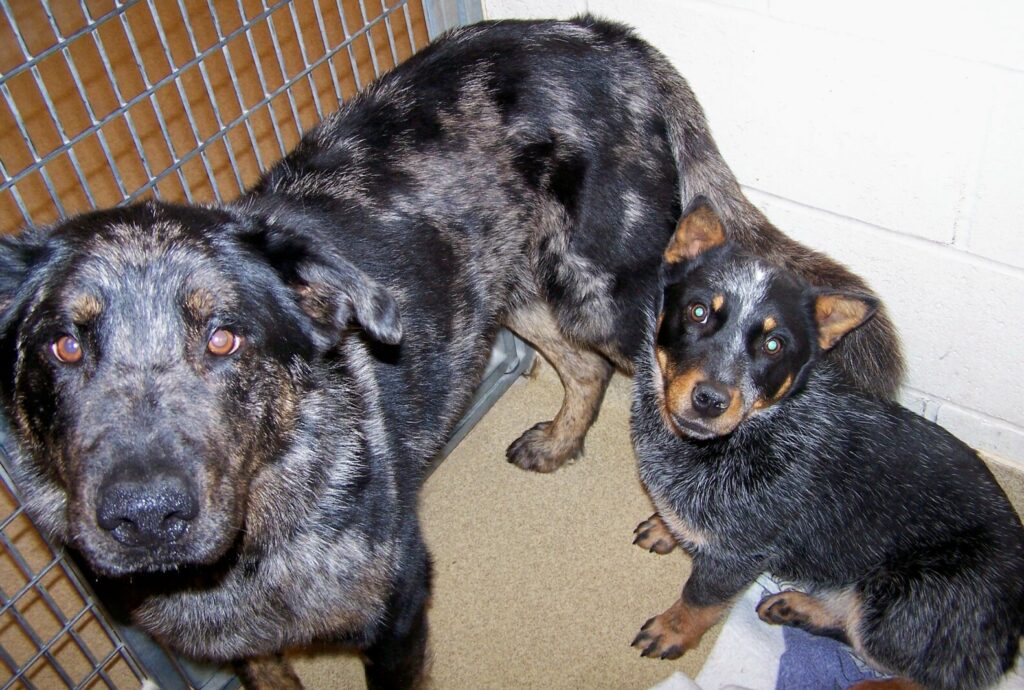A stray dog brought to Grand Forks’ Circle of Friends Humane Society was euthanized after testing positive for rabies, and dozens of people have contacted the Grand Forks Public Health Department to see if they need to get vaccinations.
Environmental health supervisor Tim Haak said at least 40 people called public health Thursday, one day after officials were notified of the test results.
“Most of these people were either volunteers, employees or were people from the general public that came out there to look at the dogs,” he said. “We’re trying to screen them to see what risk level they were at as far as their need for going through the series of vaccinations.”
The majority of callers were at low risk, Haak said, and everyone was told to see a physician as a precaution. No one has reported being bitten by the infected dog, he said.
But officials recommended about 10 callers get the multiple shots required for rabies vaccination, Haak said, because of direct contact with the dog.
Rabies, a virus that is almost always fatal, affects mammals. It can be transmitted through bites and the exposure of saliva to open wounds or mucous membranes like the eyes and mouth.
The North Dakota Department of Health is asking anyone who may have been bitten by or exposed to the dogs’ saliva March 15-20 to call them at (800) 472-2180 or contact the Grand Forks Public Health Department at (701) 787-8100.
What happened?
Arlette Moen, Circle of Friends executive director, said two blue healer mixes, Bingo and Cookie, were picked up in Marshall County, Minn., and brought to the facility on March 9.
All stray animals are held for five days — giving owners time to claim a lost pet while also allowing workers to determine if the animal’s temperament makes them suitable for adoption.
The dogs were kept together during that period, but Bingo was euthanized March 19 because it didn’t have an adoptable personality.
“It wasn’t aggressive; it wasn’t showing signs of rabies,” Moen said. “It just wasn’t appropriate to be placed in somebody’s home.”
Cookie was put into a foster home March 20. She didn’t bite anyone, Moen said, but began to show other warning signs March 25 — vomiting, shaking, not having control of her body — all possible symptoms of rabies.
The foster family brought her back to the Humane Society on March 27, she said, and Cookie was immediately taken to a veterinarian and euthanized. Tissue samples were sent to the extension office at North Dakota State University in Fargo for testing.
As a precaution, the health department goes back 10 days from the onset of symptoms, Moen said. That means they’re asking anyone who was in the shelter from March 15-20, the time during the 10-day window that the dogs were at the Humane Society, if they could have been exposed.
“What’s happening now is everybody that we know had contact with these animals is being contacted and asked to call the health department,” she said. “The health department is determining their level of exposure and whether they should be vaccinated for rabies.”
But Moen said the incident isn’t a cause for alarm and pointed out it’s the first time in her 16 years with the humane society that one of the animals tested positive for rabies.
“I’m not going to base any of my decisions on fear that this is going to happen all the time,” she said. “You have to be practical about it, but you also have to be careful and do what you can to be sure that everyone is as safe as possible.”
‘Practical and safe’
Moen said the facility’s staff “did what we’re supposed to do,” taking immediate action after learning of the possible rabies symptoms. But this could have been avoided, she said.
“The lesson here I think is for pet owners to make sure to get their pets vaccinated for rabies,” she said. “It’s one of those things that is completely preventable if pet owners are responsible.”
The animal shelter doesn’t allow dogs to come in contact with each other, which means it’s unlikely other dogs contracted the disease, Moen said. But the dog room has been temporarily closed to the public, and the health department could decide to euthanize more animals if necessary.
Workers also inspect new animals for bite wounds or the scent of a skunk, a common carrier of rabies. But there’s only so much they can do, Moen said, because rabies can incubate for weeks or months.
“If we were to quarantine a dog completely, they could be here for six months or more before they’re even placed for adoption,” she said. “We have to look at being practical and safe as well as looking at how likely is it that rabies is an issue.”
And there is no simple screening process to test for rabies and avoid these incidents in the future, Moen said.
“The only way you can test is once the dog is euthanized, the brain tissue’s analyzed,” she said.
Moen said the humane society will do all it can to ensure the safety of people and pets as it continues its work.
“As an animal shelter, it is our mission to accept stray animals and we will continue to do that,” she said. “Any animal care facility takes that risk when they accept stray animals, so it is not an option for us to stop doing that.”
Reach Johnson at (701) 780-1105; (800) 477-6572, ext. 105; or send e-mail to
rjohnson@gfherald.com
.


